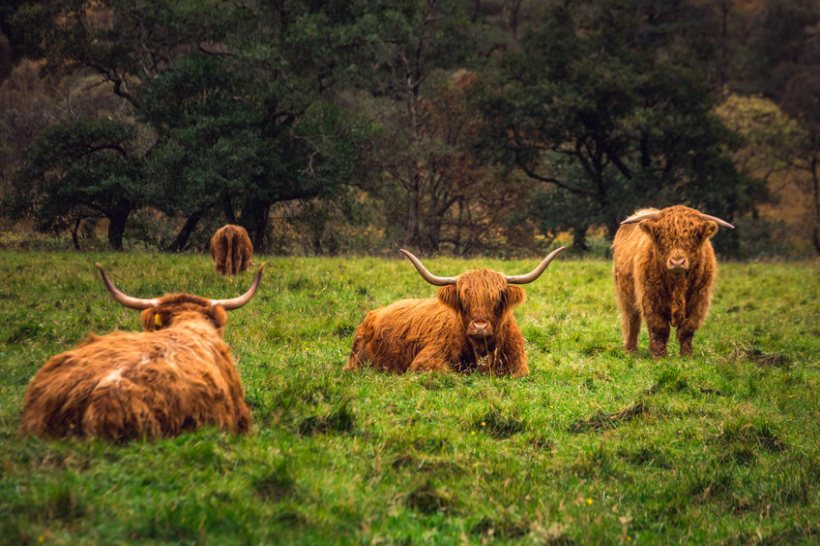Grass-fed beef and lamb should become UK's staple meat, report says

Grass-fed beef and lamb would become the public's staple meat if the UK switched to sustainable and regenerative farming practices, a new report says.
The Sustainable Food Trust’s report 'Feeding Britain from the Ground Up' finds that changing farming techniques to more sustainable ones would still allow the public to consume meat and dairy.
As part of its roadmap for an alternative food and farming strategy, a switch to regenerative farming would, however, mean 'much less' chicken and pork on supermarket shelves.
In its place, the UK's staple meat would become grass-fed beef and lamb, and the amount of fruit and vegetables would be doubled, according to the report.
But grain production would halve due to a phase out of chemical inputs and less land being used for intensive crop production.
Much less grain would be fed to livestock and intensive livestock production would be phased out, the report says, resulting in a 75% decline in pork and chicken production.
The report, released on Wednesday (15 June), includes modelling on how a complete switch to sustainable and regenerative farming practices across the UK would impact British diets.
The Sustainable Food Trust said: "A UK-wide transition to sustainable and regenerative farming practices, to tackle the climate, nature and public health crises, could produce enough food to maintain and potentially even improve current levels of self-sufficiency, provided we ate differently, ate less and cut food waste.
"These are the key conclusions of our report, which explores the potential impacts on land use, food production and individual diets of a UK-wide transition to sustainable farming based on biological principles."
The report finds that sustainable diets would include increased proportions of UK-grown vegetables, seasonal fruits, grains and pulses.
They would also include dairy and some eggs. But, future sustainable diets would still include similar levels of grass-fed red meat products such as beef and lamb.
Conversely, there would be significant cuts to consumption of chicken and pork due to a dramatic decrease in grain being fed to animals as a result of adopting regenerative farming practices.
This is because regenerative agriculture would require a phasing out of intensive, grain-fed livestock production and a return to ‘mixed farming’, where crops and livestock are grown in rotation to rebuild soil fertility naturally.
Patrick Holden, CEO of the Sustainable Food Trust, said food and farming techniques were 'part of the problem' to current crises, but it could be a 'big part of the solution'.
"We can either double down on industrial farming to produce food that is bad for our health, the environment and food security - or we can turn this crisis into an opportunity to accelerate more sustainable food and farming," he said.
"We can all play a big role in driving the change that is urgently needed. If we want to eat sustainably, we should eat the foods that can be grown in harmony with nature across the UK.
"As consumers and citizens, changing our diets could be one of the most important actions we take to address the threats of climate change, nature loss and damage to public health, and support farmers to transform the way they farm.”








